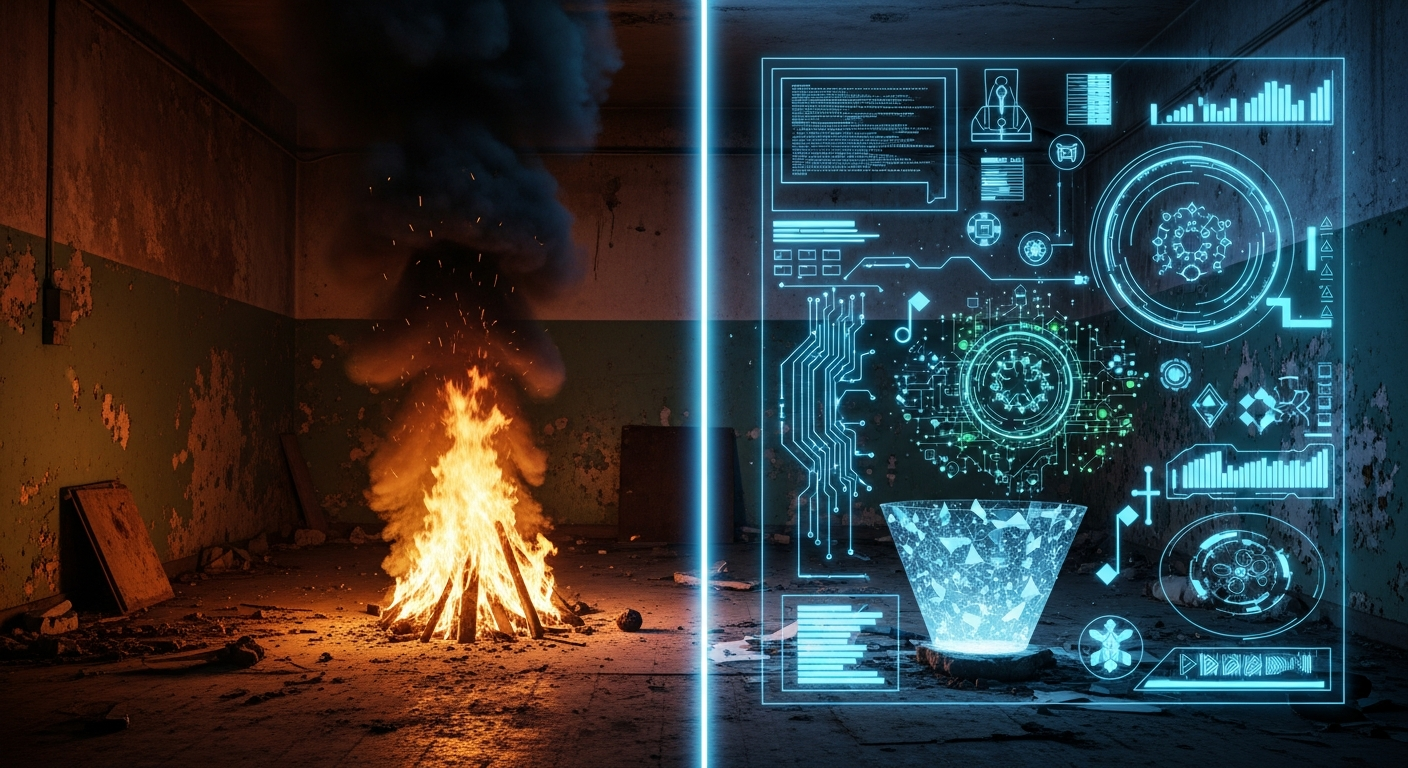
The news from Kanpur, detailing the tragic suffocation of four young individuals from a bonfire in a closed room at the Panki Industrial area, has left me deeply saddened. It's a stark, painful reminder that amidst our pursuit of advanced technology and intellectual frontiers, fundamental human safety and awareness remain critically important.
My thoughts often drift to the future, to the incredible potential and complex challenges posed by artificial intelligence, as I've explored in discussions on AI-driven appliances or the vital role of Critical Thinking: Achilles' Heal of AI. Yet, this tragedy brings us back to basics, to preventable dangers that require simple, human foresight.
While I can't claim to have predicted specific incidents like suffocation from bonfires, I believe the essence of prediction lies in anticipating dangers, understanding consequences, and recognizing the critical role of human intelligence in preventing harm. My writings have frequently touched upon the necessity for careful design and oversight, even when discussing AI's potential harms, as in "Why AI can harm us, how we can stop it?". This human element of oversight is crucial not just for sophisticated AI systems, but also for simple, everyday situations where a lack of awareness can have devastating consequences.
The idea of continuous learning and integrating diverse data, which I discussed with Sandeep, Sanjivani, and Suman in the context of training my Personal AI as detailed in "Your Personal AI Playbook for Effective", resonates deeply here. In a human context, this translates to continuous education about safety, about the inherent risks in our environment, and how to mitigate them. It’s about building a comprehensive understanding not just of algorithms, but of our physical surroundings.
Even when I envisioned a future shaped by the collective brilliance of leaders like Eric Schmidt and Jared Cohen from Google, Sergy Brin, Elon Musk, Satya Nadela, Mark Zuckerberg, Jeff Bezos, Ray Kurzweil, Tim Cook, Vishal Sikka, Nandan Nilekani, and Pramod Verma, as outlined in "Racing Towards Arihant", the underlying principle was always about understanding and actively shaping our world for the better. Francesca Rossi, an AI ethics researcher at IBM Research, and Mustafa Suleyman, co-founder of DeepMind, highlighted the importance of trust and societal impact in AI, as mentioned in "Revenge of AI". This sentiment of ensuring technology benefits humanity extends to ensuring our basic environments are safe.
The core idea I want to convey is this — I had brought up the thought of anticipating challenges and proposing solutions years ago, albeit in different contexts. Now, seeing how things have unfolded with this tragic incident, it's striking how relevant that earlier emphasis on foresight, critical thinking, and continuous learning still is. Reflecting on it today, I feel a renewed urgency to revisit those foundational ideas, because they clearly hold immense value in preventing such heart-wrenching losses.
This tragedy serves as a poignant reminder that while we reach for the stars with AI and advanced technologies, we must never neglect the ground beneath our feet. Basic knowledge, education, and unwavering adherence to safety protocols remain paramount. It’s about more than just technological advancement; it’s about nurturing a culture of awareness, care, and proactive safety for all.
Regards, Hemen Parekh
Of course, if you wish, you can debate this topic with my Virtual Avatar at : hemenparekh.ai






No comments:
Post a Comment